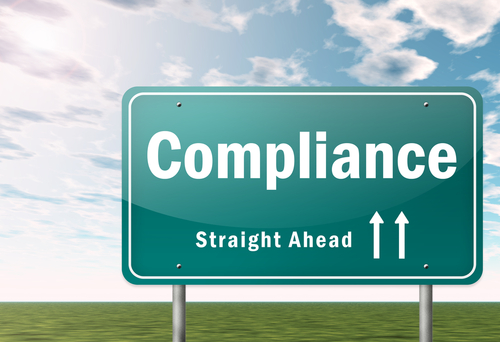Advertising compliance training is a process by which businesses and individuals learn how to comply with the various laws and regulations governing advertising. This type of training can be critical for businesses that want to avoid costly penalties or legal action. The training typically covers topics such as false advertising, product labeling, and marketing to children.
Advertising compliance training is vital for any company that wants to stay within the bounds of the law. There are many laws and regulations governing advertising, and it can be difficult to keep up with all of them. A good compliance training program will teach employees about the different laws and how to comply with them.
It will also provide a mechanism for employees to report any potential violations.
Marketing And Advertising Compliance
What is Compliance in Advertising?
Advertising Compliance Training: Advertising compliance refers to the process of ensuring that an advertisement meets all applicable laws and regulations. This includes ensuring that the ad is not misleading, offensive, or otherwise in violation of any law or regulation. Compliance also encompasses ensuring that the ad is appropriately targeted and does not make any false or unsubstantiated claims.
There are a number of different bodies that regulate advertising, including government agencies, industry self-regulatory organizations, and consumer protection groups. Advertisers must be familiar with the applicable laws and regulations in order to ensure compliance. Failure to comply with advertising laws can result in significant penalties, including fines, lawsuits, and even jail time.
Some of the most common laws and regulations that apply to advertising include Truth in Advertising laws, which prohibit deceptive or misleading ads; hate speech laws, which prohibit ads that contain hateful or discriminatory content; and privacy laws, which prohibit the use of personal data without consent. Advertisers must also comply with any specific industry-specific rules or codes of conduct. Compliance with advertising standards can be a complex and daunting task for advertisers.
However, it is essential to ensure that all ads are legal and meet all applicable requirements.
What Should Be Included in Compliance Training?
Advertising Compliance Training: In order for compliance training to be effective, it must cover a wide range of topics. Here are some of the most important topics that should be included:
1. Introduction to compliance and its importance: Employees should be made aware of what compliance is and why it’s important. They should understand that complying with laws and regulations is essential to avoid penalties, fines or other legal action.
2. Specific compliance requirements: Training should cover specific compliance requirements relevant to your industry or business. For example, if you’re in the healthcare industry, employees should be trained on HIPAA privacy rules. If you’re in the financial industry, employees should be trained on banking regulations.
3. Your company’s policies and procedures: Employees should also be familiar with your company’s policies and procedures related to compliance. They should know who to contact with questions or concerns, and what the consequences are for not following policy.
4. How to report suspected violations: Employees need to know how to report suspected violations of law or regulation, without fear of retaliation. They should understand that reporting potential problems is essential to preventing serious issues down the road. 5. Continuing education: Compliance training shouldn’t end after initial on boarding – employees need ongoing education to keep up with changing laws and regulations (and your company’s policies).
What are Compliance Strategies Used in Advertisements?
Advertising Compliance Training: There are a number of compliance strategies that can be used in advertisements. The most common is probably the foot-in-the-door technique, which involves asking for a small favor before making a larger request. For example, an ad might start by asking viewers to consider buying a product, and then gradually increase the level of commitment by asking them to sign up for a free trial or special offer.
Other common compliance strategies include door-in-the-face (making an initial unrealistic request in order to increase the likelihood of having a smaller one accepted), low balling (making an initial offer that is below what the advertiser is actually willing to accept), and social proof (showing that others have already taken the desired action). Which strategy is most effective will depend on factors such as the type of product being advertised, the target audience, and the overall tone of the ad. However, all of these techniques can be used to some degree in order to encourage viewers to take action.
What is the Purpose of Compliance Training?
Advertising Compliance Training: There are many purposes of compliance training, but the most important purpose is to ensure that employees understand and follow the company’s policies and procedures. Compliance training can help reduce the risk of legal liability for the company, and it can also help improve employee morale by ensuring that employees feel comfortable with company policy.

Credit: hrdailyadvisor.blr.com
How to Become a Compliance Officer
The compliance officer is responsible for ensuring that an organization complies with all applicable laws and regulations. The compliance officer may also be responsible for developing and implementing policies and procedures to ensure compliance.Most compliance officers have a bachelor’s degree in business administration, accounting, finance, or a related field.
Some organizations may require a master’s degree or certification in risk management or auditing. Compliance officers must have strong analytical skills and be able to communicate effectively both verbally and in writing. They must also be able to work independently and be detail-oriented.
Compliance officers typically report to the chief executive officer (CEO) or the chief operating officer (COO). They may also work closely with the general counsel, chief financial officer (CFO), and other senior managers.
Conclusion
The blog post discusses the importance of advertising compliance training. It is important for businesses to train their employees on advertising compliance in order to avoid costly penalties. The blog post provides tips on how to create an effective training program.
By following these tips, businesses can ensure that their employees are properly trained and compliant with advertising regulations.
